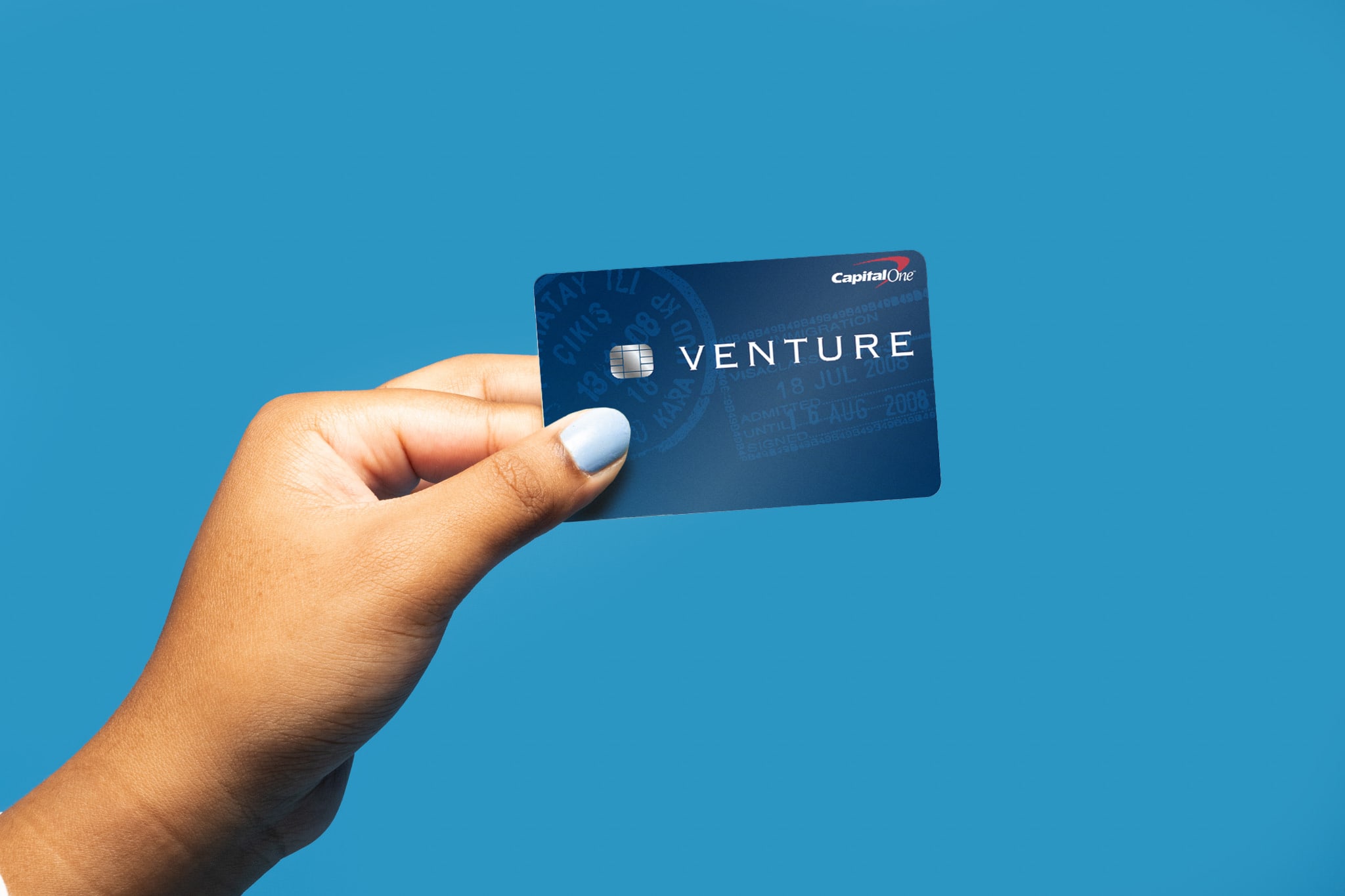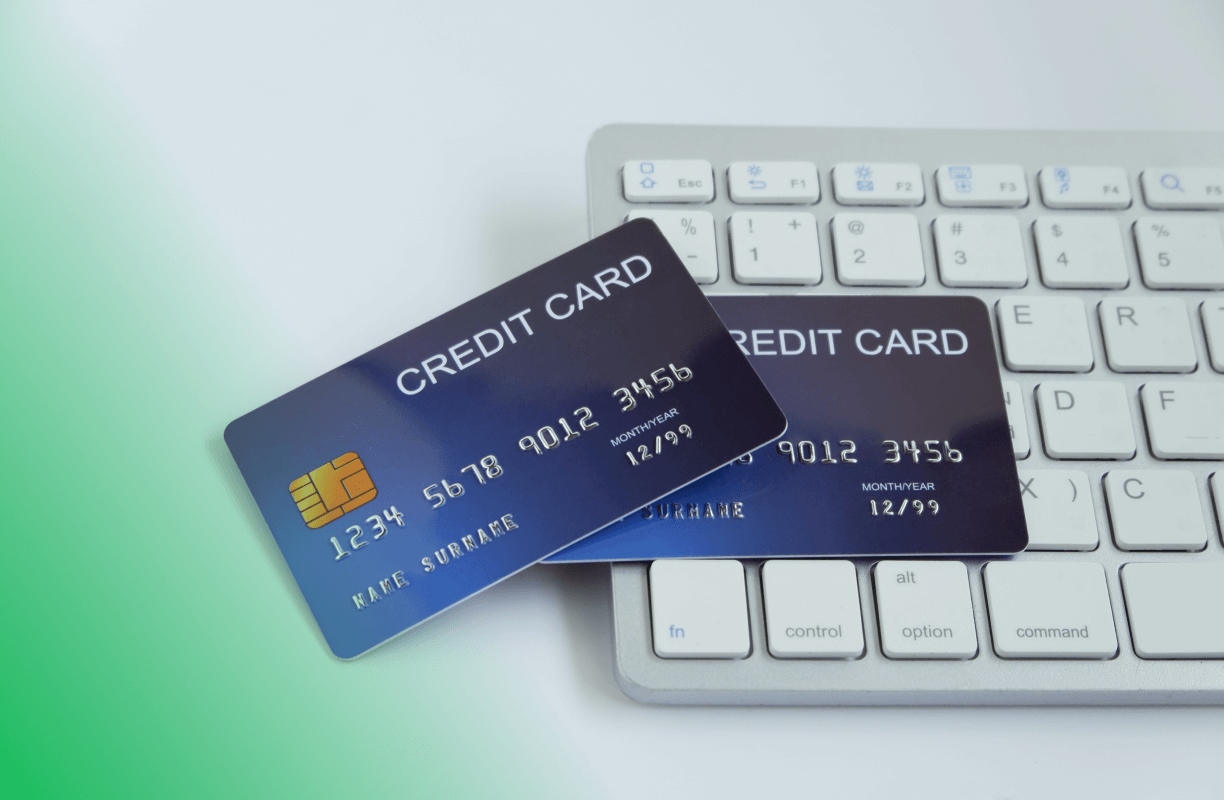

Finance
How Do You Build Credit Without A Credit Card
Published: November 11, 2023
Looking to build credit but don't have a credit card? Discover alternative ways to establish credit and improve your financial standing.
(Many of the links in this article redirect to a specific reviewed product. Your purchase of these products through affiliate links helps to generate commission for LiveWell, at no extra cost. Learn more)
Table of Contents
- Introduction
- Understanding the Importance of Building Credit
- Factors that Influence Credit Building
- Alternative Ways to Build Credit without a Credit Card
- Paying Rent and Utility Bills on Time
- Taking Out a Personal Loan
- Becoming an Authorized User on Someone Else’s Credit Card
- Applying for a Secured Credit Card
- Building Credit through Rent Reporting Services
- Utilizing Credit Builder Loans
- Applying for a Credit-Builder Credit Card
- Becoming a Co-signer on a Loan
- Opening a Joint Account with a Spouse or Partner
- Utilizing Self Lender or Credit Strong Programs
- Conclusion
Introduction
Building credit is essential for financial success. A strong credit history not only helps you qualify for loans and credit cards, but it also plays a significant role in securing favorable interest rates and insurance premiums. However, many people believe that a credit card is the only way to build credit. The good news is, that’s not the case.
In this article, we will explore alternative methods to build credit without a credit card. Whether you are new to credit or prefer to avoid revolving debt, these strategies can help you establish a solid credit foundation.
Before we dive into the methods, let’s understand why credit building is so important. Building a good credit score demonstrates financial responsibility and trustworthiness in the eyes of lenders. This, in turn, increases your chances of getting approved for credit and favorable interest rates.
Your credit score is influenced by various factors such as payment history, credit utilization, length of credit history, credit mix, and new credit. By strategically managing these factors, you can improve your creditworthiness and enhance your financial opportunities.
Now that we have established the significance of building credit, let’s explore the alternative ways to establish credit without relying on a credit card.
Understanding the Importance of Building Credit
Building credit is essential for financial success and stability. A strong credit history demonstrates your ability to responsibly manage credit and financial obligations. Lenders, landlords, and insurance providers use your credit score as a measure of your creditworthiness and trustworthiness.
Having good credit can open doors to various financial opportunities. Here are a few reasons why building credit is important:
- Access to Financial Products: Building credit allows you to qualify for loans, mortgages, credit cards, and other financial products. A positive credit history makes it easier to secure favorable terms and lower interest rates.
- Lower Interest Rates: A high credit score can help you secure loans and credit cards with lower interest rates. This translates to lower monthly payments and less money paid towards interest over time.
- Employment Opportunities: Some employers conduct credit checks as part of their hiring process, especially for positions that require financial responsibility. Having good credit can increase your chances of landing a job or advancing in your career.
- Lower Insurance Premiums: Many insurance companies consider your credit score when determining your premiums. A good credit score can help you save money on auto, home, and even life insurance policies.
It is crucial to understand that building credit is a long-term process. It requires responsible financial behavior and consistent, on-time payments. By actively managing your credit, you can create a positive credit history and increase your credit score over time.
Now that we recognize the importance of building credit, let’s explore the various factors that influence credit building.
Factors that Influence Credit Building
Several factors play a significant role in building and maintaining a good credit score. Understanding these factors can help you make informed decisions and improve your creditworthiness. Here are the key factors that influence credit building:
- Payment History: Your payment history is the most crucial factor in building credit. It accounts for about 35% of your credit score. Making consistent, on-time payments on your debts and bills demonstrates financial responsibility and reliability to lenders.
- Credit Utilization: Credit utilization refers to the percentage of your available credit that you are utilizing. Keeping your credit utilization below 30% is generally recommended. High credit utilization can negatively impact your credit score as it may indicate a reliance on credit or an inability to manage debt effectively.
- Length of Credit History: The length of your credit history also affects your credit score. Having a longer credit history demonstrates a track record of responsible credit management. If you are new to credit, it may take time to establish a solid credit history.
- Credit Mix: Credit mix refers to the variety of credit types in your profile, such as credit cards, loans, and mortgages. Having a mix of different types of credit can positively impact your credit score, as it shows your ability to manage different financial obligations.
- New Credit: Opening multiple new credit accounts within a short period can have a negative impact on your credit score. Applying for too much credit at once may indicate financial instability or a higher risk of defaulting on payments.
It is important to note that different credit scoring models may weigh these factors differently. However, understanding these general principles can guide you in building a solid credit history.
Now that we understand the factors that influence credit building, let’s explore alternative ways to build credit without relying solely on a credit card.
Alternative Ways to Build Credit without a Credit Card
While credit cards are commonly used to build credit, they are not the only option available. If you prefer to avoid credit cards or are unable to qualify for one, there are several alternative methods to establish and improve your credit. Here are ten effective ways to build credit without a credit card:
- Paying Rent and Utility Bills on Time: Many landlords and utility companies report your payment history to credit bureaus. Ensuring timely payments for rent and utilities can help build positive credit history.
- Taking Out a Personal Loan: Personal loans can help establish credit if you make regular, on-time payments. Look for lenders who report loan activity to credit bureaus to ensure it reflects on your credit history.
- Becoming an Authorized User on Someone Else’s Credit Card: If a family member or friend with good credit adds you as an authorized user on their credit card, their positive credit history can be reflected on your credit report. Be sure to choose someone who is responsible with their credit.
- Applying for a Secured Credit Card: Secured credit cards require a cash deposit as collateral, making them easier to qualify for. By making regular, on-time payments, you can build credit with a secured credit card.
- Building Credit through Rent Reporting Services: Rent reporting services allow you to include your rent payment history on your credit report. This can help build credit by showcasing your timely payments.
- Utilizing Credit Builder Loans: Credit builder loans are specifically designed to help individuals establish or improve their credit. These loans require you to make regular payments, which are reported to credit bureaus, helping you build a positive credit history.
- Applying for a Credit-Builder Credit Card: Credit-builder credit cards are specially designed for individuals with limited or no credit history. These cards often require a security deposit and have low credit limits, but they provide an opportunity to establish credit.
- Becoming a Co-signer on a Loan: If you have a trusted friend or family member willing to co-sign a loan with you, it can help you build credit. However, remember that both parties are equally responsible for the loan repayment.
- Opening a Joint Account with a Spouse or Partner: Opening a joint account, such as a joint credit card or loan, can help build credit as long as payments are made on time. It is essential to have a transparent and responsible approach when managing joint accounts.
- Utilizing Self Lender or Credit Strong Programs: Self Lender and Credit Strong are programs that allow you to build credit through small installment loans. These programs provide an opportunity to establish credit without requiring a credit card.
Remember, whichever method you choose, it is crucial to make timely payments and practice responsible financial behavior to build and maintain a positive credit history.
Now that you are aware of these alternative methods, you can choose the one that best suits your financial situation and goals. Building credit without a credit card is indeed possible, and by taking the necessary steps, you can pave the way for a strong credit future.
Paying Rent and Utility Bills on Time
Paying your rent and utility bills on time is an effective way to build credit without a credit card. Many landlords and utility companies report your payment history to credit bureaus, which means that your on-time payments can positively impact your credit score.
Here’s how you can make the most of this method:
- Know if your payments are being reported: Contact your landlord or utility provider to find out if they report payment history to credit bureaus. If they don’t, you can explore services that specialize in rent reporting, which can help you include your timely rent payments on your credit report.
- Ensure timely payments: Pay your rent and utility bills on time every month. Late or missed payments can have a negative impact on your credit score, so it’s crucial to prioritize these payments and make them a top financial priority.
- Keep records: Keep records of your rental and utility payment history. These records can serve as proof of your timely payments if any discrepancies arise or if you need to provide evidence of your positive payment history in the future.
- Automate your payments: Consider setting up automatic payments for your rent and utility bills. This can help ensure that you never miss a payment and maintain a consistent track record of on-time payments.
- Communicate with your landlord or utility provider: If you are facing financial difficulties or anticipate a potential late payment, communicate with your landlord or utility provider in advance. They may be understanding and offer flexibility or alternative payment arrangements.
By consistently paying your rent and utility bills on time, you can establish a positive credit history and demonstrate financial responsibility. This method is particularly beneficial for individuals who do not have a credit card or prefer not to rely on revolving debt to build credit.
Now that you know the importance of paying rent and utility bills on time, let’s explore other alternative ways to build credit without a credit card.
Taking Out a Personal Loan
Taking out a personal loan is another viable option for building credit without a credit card. Personal loans are installment loans that require you to make regular payments over a specified period. By responsibly managing and paying off a personal loan, you can establish a positive credit history.
Here are some key points to consider when taking out a personal loan to build credit:
- Choose lenders that report to credit bureaus: Before applying for a personal loan, ensure that the lender reports loan activity to credit bureaus. Not all lenders do, so it’s important to confirm this in order to benefit from the positive impact on your credit history.
- Borrow a manageable amount: It’s advisable to borrow an amount that you can comfortably repay within the agreed timeframe. Taking on a loan that is too large or difficult to repay can lead to missed payments, which will have a negative impact on your credit score.
- Make timely payments: Pay your personal loan installments on time each month. Making consistent, on-time payments is crucial for demonstrating your creditworthiness and building a positive credit history.
- Avoid excessive borrowing: While it may be tempting to borrow more than you need, keep in mind that your creditworthiness is also determined by your debt-to-income ratio. Keep your borrowing in check and ensure that your debt remains manageable in relation to your income.
- Monitor your credit report: Regularly check your credit report to ensure that your loan payments are being accurately reported. Mistakes on your credit report can negatively impact your credit score, so it’s important to address any errors promptly.
By successfully managing a personal loan and making timely payments, you can establish a positive payment history and improve your creditworthiness. This method allows you to build credit while also gaining access to funds that can be used for various purposes, such as debt consolidation or financing personal expenses.
Now that you understand how personal loans can help build credit, let’s explore other alternative methods to establish credit without relying on a credit card.
Becoming an Authorized User on Someone Else’s Credit Card
If you don’t have your own credit card, an effective way to build credit is by becoming an authorized user on someone else’s credit card. This method allows you to benefit from their positive credit history and establish your own creditworthiness.
Here’s how you can make the most of this strategy:
- Choose a trusted individual: Find someone, such as a family member or close friend, who has a good credit history and is willing to add you as an authorized user to their credit card account.
- Ensure responsible credit card usage: Before becoming an authorized user, have a discussion with the primary cardholder about their expectations and guidelines for using the credit card. It’s essential to establish open communication and a clear understanding of payment responsibilities.
- Confirm that the card issuer reports authorized users: Not all credit card issuers report authorized user activity to credit bureaus. Verify that the primary cardholder’s credit card company reports authorized user information to ensure that your credit-building efforts will be reflected on your credit report.
- Monitor your credit report: Regularly check your credit report to ensure that the credit card activity is being accurately reported. This will help you track your progress in building credit as an authorized user.
As an authorized user, the primary cardholder’s credit card history will be reflected on your credit report, potentially boosting your credit score. It’s important to note that any mismanagement or late payments on the credit card can also have a negative impact on your credit. Therefore, responsible credit usage and open communication with the primary cardholder are key to making this method successful.
Being an authorized user on a credit card can be a valuable opportunity to establish credit without the responsibility of managing your own card. However, it’s essential to treat this privilege with care and use it as a stepping stone to eventually qualify for your own credit card or other credit-building options.
Now that you understand the benefits of becoming an authorized user, let’s explore other alternative methods to build credit without relying solely on a credit card.
Applying for a Secured Credit Card
If you’re looking to build credit but are unable to qualify for a traditional unsecured credit card, a secured credit card can be a viable option. A secured credit card requires a cash deposit as collateral, which serves as your credit limit. This deposit reduces the risk for the issuer, making it easier to obtain a secured credit card even with limited or no credit history.
Here’s how you can make the most of a secured credit card to build credit:
- Select a reputable secured credit card issuer: Research and choose a secured credit card issuer with favorable terms and a good reputation. Look for low annual fees and interest rates, as well as a reliable method for reporting your payment history to credit bureaus.
- Provide a sufficient deposit: Your credit limit on a secured credit card is typically equal to or slightly higher than the deposit amount. Ensure that you provide a sufficient deposit to establish a meaningful credit limit, but also one that you can comfortably manage.
- Use the card responsibly: Treat your secured credit card like any other credit card. Make small, regular purchases and pay off the balance in full each month. This demonstrates responsible credit usage and helps build a positive payment history.
- Make payments on time: Timely payments are crucial for building credit. Always pay your secured credit card bill on time. Late payments can result in penalty fees and negatively impact your credit score.
- Monitor your credit report: Regularly monitor your credit report to ensure that your secured credit card activity is being accurately reported. This allows you to verify the positive impact on your credit score and address any errors that may arise.
By using a secured credit card responsibly, you can gradually build a positive credit history and improve your creditworthiness. Over time, you may become eligible for unsecured credit cards or other financial products with more favorable terms.
Remember, a secured credit card is a tool to help you build credit, so it’s important to use it responsibly and avoid accumulating unnecessary debt. With consistent payments and responsible credit usage, a secured credit card can be an effective method for establishing credit.
Now that you have learned about secured credit cards, let’s explore other alternative ways to build credit without solely relying on a credit card.
Building Credit through Rent Reporting Services
If you are a renter and want to build credit, utilizing rent reporting services can be a valuable option. Rent reporting services allow you to include your monthly rent payments in your credit history, helping you establish and improve your credit profile.
Here’s how you can effectively build credit through rent reporting services:
- Choose a reputable rent reporting service: Research and select a reliable rent reporting service that works with major credit bureaus. This ensures that your rental payment history is accurately reported and reflected on your credit report.
- Verify your landlord’s participation: Check if your landlord or property management company is willing to participate in the rent reporting process. They may need to provide information or documentation to the rent reporting service to validate your rental payments.
- Enroll in the rent reporting service: Once you have selected a rent reporting service and confirmed your landlord’s participation, enroll in the program. You may need to provide details of your lease agreement and payment history to initiate the reporting process.
- Pay your rent on time, every time: Consistently make timely rent payments each month. Just like with any other credit-building method, on-time payments are crucial for establishing a positive credit history.
- Monitor your credit report: Regularly check your credit report to see if your rental payment history is accurately reported. This allows you to verify that your efforts to build credit through rent reporting services are being reflected in your credit score.
By including your rent payments in your credit history, you can demonstrate responsible financial behavior and improve your creditworthiness. Rent reporting services provide an opportunity for individuals who may not have traditional credit accounts, such as credit cards or loans, to establish a positive credit profile.
Keep in mind that not all rent reporting services are free, and some may charge a fee for their services. It’s important to weigh the cost against the potential benefits to determine if utilizing a rent reporting service is the right choice for you.
Now that you understand how rent reporting services can help build credit, let’s explore other alternative methods to establish credit without relying solely on a credit card.
Utilizing Credit Builder Loans
If you’re looking for a structured approach to building credit, credit builder loans can be an effective option. These loans are specifically designed to help individuals with limited or no credit history establish a positive credit profile.
Here’s how you can make the most of credit builder loans to build credit:
- Research and choose a reputable lender: Look for lenders that offer credit builder loans specifically designed to help you build credit. Consider factors such as interest rates, fees, and the lender’s reputation before making a decision.
- Select a loan amount you can comfortably manage: Choose a loan amount that you can comfortably repay within the agreed-upon terms. It’s important to avoid borrowing excessively and to ensure that you can make the required monthly payments without financial strain.
- Make timely payments: Pay your credit builder loan installments on time every month. Making consistent, on-time payments is crucial for establishing a positive payment history and demonstrating your creditworthiness to future lenders.
- Monitor your credit report: Regularly check your credit report to ensure that your credit builder loan payments are being accurately reported. This allows you to verify the positive impact on your credit score and address any discrepancies if they arise.
- Review the loan terms: Familiarize yourself with the loan terms, including the interest rate, repayment period, and any potential fees. Understanding your obligations as a borrower will help you manage the loan effectively and avoid any unexpected surprises.
Credit builder loans work differently than traditional loans. Instead of receiving the loan funds upfront, the money is typically held in an account while you make regular payments. Once the loan term is completed, you can access the funds. The primary goal of a credit-builder loan is to establish a positive credit history and improve your creditworthiness.
While credit builder loans may involve some fees or interest charges, they can be a valuable tool for building credit for those who have limited credit history or need to rebuild their credit. With responsible repayment, a credit builder loan can help you establish a strong credit foundation.
Now that you understand the benefits of utilizing credit builder loans, let’s explore other alternative methods to build credit without relying solely on a credit card.
Applying for a Credit-Builder Credit Card
If you’re looking to build credit but have limited credit history or a low credit score, a credit-builder credit card can be an excellent option. These cards are specifically designed for individuals who want to establish or rebuild their credit profiles.
Here’s how you can effectively use a credit-builder credit card to build credit:
- Research and choose a suitable credit-builder credit card: Look for credit cards specifically designed for individuals with limited or no credit history. Compare different options and consider factors such as fees, interest rates, and any potential rewards or benefits associated with the card.
- Apply for the card: Once you’ve chosen a credit-builder credit card, submit an application. Even if you have a low credit score, you may still qualify for these types of cards since they are designed to help individuals establish credit.
- Use the card responsibly: Treat your credit-builder credit card like any other credit card. Make small, regular purchases, and pay off the balance in full and on time every month. This demonstrates responsible credit usage and helps build a positive payment history.
- Avoid carrying a high balance: Keeping your credit utilization ratio low is essential for building credit. Try to keep your balance below 30% of your credit limit to avoid negatively impacting your credit score.
- Make payments on time: Timely payments are crucial for building credit. Always make your credit card payments on time. Late payments can result in penalty fees and negatively affect your credit score.
- Monitor your credit report: Regularly check your credit report to ensure that your credit card activity is being accurately reported. This allows you to verify the positive impact on your credit score and address any errors or discrepancies that may arise.
A credit-builder credit card provides an opportunity for individuals with limited credit history to establish a positive credit profile. By responsibly using the card and making on-time payments, you can build a solid credit foundation and improve your creditworthiness over time.
Keep in mind that credit-builder credit cards may have higher interest rates or fees compared to traditional credit cards. It’s important to review and understand the terms and conditions of the card before applying to ensure that it fits your financial situation.
Now that you know how credit-builder credit cards can help build credit, let’s explore other alternative methods to establish credit without relying solely on a credit card.
Becoming a Co-signer on a Loan
If you’re looking to build credit and have a trusted friend or family member who is willing to help, becoming a co-signer on a loan can be an effective option. When you co-sign a loan with someone, both parties are equally responsible for repaying the debt. Becoming a co-signer allows you to benefit from the loan’s positive payment history and establish or improve your own credit profile.
Here’s how you can make the most of this credit-building method:
- Choose a responsible borrower: Select someone with good credit and a track record of making timely payments. Becoming a co-signer means that you share the responsibility for repaying the loan, so it’s crucial to choose someone you trust and who manages their finances responsibly.
- Review the loan terms: Carefully review the terms of the loan before becoming a co-signer. Understand the interest rate, repayment period, and any potential fees associated with the loan. Ensure that you are comfortable with the loan terms and can afford the payments if the primary borrower is unable to make them.
- Make timely payments: Just like with other credit-building methods, making timely payments is crucial. As a co-signer, it’s your responsibility to ensure that the loan payments are made on time each month. Late or missed payments can negatively affect both your credit and the primary borrower’s credit.
- Communicate openly: Establish open communication with the primary borrower. Regularly discuss the loan status, upcoming payments, and any potential issues or challenges that may arise. Maintaining clear communication helps avoid misunderstandings and ensures that both parties are aware of their responsibilities.
- Monitor your credit report: Regularly check your credit report to ensure that the loan activity is being accurately reported. This allows you to verify that the loan’s positive payment history is reflected on your credit profile.
By co-signing a loan with someone who has good credit, you can benefit from their positive payment history and establish your own creditworthiness. However, it’s important to remember that co-signing a loan is a significant financial obligation, and any missed or late payments can have a negative impact on both you and the primary borrower.
Before becoming a co-signer, carefully consider your own financial situation and the potential risks involved. Open communication and mutual trust are key to make this credit-building method successful.
Now that you understand the process of becoming a co-signer on a loan, let’s explore other alternative methods to build credit without solely relying on a credit card.
Opening a Joint Account with a Spouse or Partner
If you’re in a committed relationship and want to build credit together, opening a joint account with your spouse or partner can be an effective method. A joint account allows both individuals to share financial responsibilities and build credit collectively.
Here’s how you can make the most of opening a joint account to build credit:
- Evaluate the relationship: Before opening a joint account, it’s crucial to have a strong and trusting relationship with your spouse or partner. Remember that both parties are equally responsible for managing the account and making payments on time.
- Select a suitable financial institution: Research different banks or credit unions and choose the one that offers joint accounts with favorable terms. Consider factors such as fees, interest rates, and the convenience of banking services provided.
- Set clear financial goals and expectations: Have an open and honest conversation with your spouse or partner about your expectations for the joint account. Discuss your financial goals, spending habits, and strategies for building credit together.
- Make regular contributions: Both individuals should contribute to the joint account regularly. Whether it’s direct deposits from paychecks or scheduled transfers, consistent contributions demonstrate financial responsibility and help build a positive credit history.
- Communicate effectively: Good communication is essential in managing a joint account. Regularly discuss financial matters, keep track of expenses, and ensure that both individuals are aware of the account’s activity and any upcoming payments.
- Make payments on time: Timely payments are crucial for building credit. Ensure that all joint account payments, such as bills or loan installments, are made on time every month. Consistent and timely payments contribute to a positive credit history for both account holders.
- Monitor your credit report: Regularly check your credit report to ensure that the joint account activity is being accurately reported. This allows you to verify the positive impact on both individuals’ credit scores and address any errors or discrepancies if they arise.
Opening a joint account with your spouse or partner can strengthen both your financial partnership and your credit history. By managing the account responsibly and making timely payments, you can collectively build a strong credit foundation.
It’s important to note that opening a joint account involves a significant level of shared financial responsibility. It’s crucial to trust and communicate effectively with your partner to ensure that the joint account contributes positively to your credit-building goals.
Now that you understand the benefits of opening a joint account, let’s explore other alternative methods to build credit without solely relying on a credit card.
Utilizing Self Lender or Credit Strong Programs
If you’re looking for a structured and disciplined approach to building credit, utilizing programs like Self Lender or Credit Strong can be a valuable option. These programs allow you to establish credit through installment loans while saving money at the same time.
Here’s how you can effectively utilize Self Lender or Credit Strong programs to build credit:
- Research and choose a program: Compare different programs like Self Lender and Credit Strong, and choose the one that suits your financial goals and needs. Consider factors such as the loan amounts offered, fees, interest rates, and the reputation of the program.
- Enroll and make regular payments: Once you’ve chosen a program, enroll and make regular payments toward the installment loan. These programs typically hold your payment in a secure account, and you receive the funds once the loan term is complete. Each payment contributes to a positive payment history and helps build credit.
- Monitor your progress: Check your credit report regularly to ensure that the program’s installment loan payments are accurately reported. This allows you to track your progress in building credit and verify that your efforts are being reflected on your credit profile.
- Complete the program successfully: Successfully completing the program by making all the payments on time demonstrates your ability to manage credit responsibly. It adds a positive mark to your credit history and helps establish a strong credit foundation for future borrowing.
- Continue building credit: Once you have successfully completed the program, continue to build your credit by maintaining responsible financial habits. Make timely payments on your other financial obligations, keep your credit utilization low, and monitor your credit report regularly to track your progress.
Self Lender and Credit Strong programs offer individuals a structured way to build credit through installment loans. By making regular on-time payments, you can establish a positive credit history and boost your creditworthiness.
Keep in mind that these programs may involve fees or interest charges, so it’s essential to review the terms and conditions carefully. Assess whether the benefits of participating in the program outweigh the costs and align with your credit-building goals.
Now that you understand how programs like Self Lender or Credit Strong can help you build credit, let’s summarize the alternative methods we’ve explored to establish credit without solely relying on a credit card.
Conclusion
Building credit is crucial for financial success and opens doors to various opportunities. While credit cards are often the go-to for credit building, there are alternative methods available for those who prefer not to rely on credit cards or cannot qualify for them. In this article, we explored various ways to build credit without a credit card.
We started by highlighting the importance of building credit and understanding the key factors that influence credit building, including payment history, credit utilization, length of credit history, credit mix, and new credit. Armed with this knowledge, we then delved into ten alternative methods to build credit:
- Paying rent and utility bills on time
- Taking out a personal loan
- Becoming an authorized user on someone else’s credit card
- Applying for a secured credit card
- Building credit through rent reporting services
- Utilizing credit builder loans
- Applying for a credit-builder credit card
- Becoming a co-signer on a loan
- Opening a joint account with a spouse or partner
- Utilizing Self Lender or Credit Strong programs
Each method comes with its own benefits and considerations, and it’s important to choose the approach that aligns with your financial goals and situation.
Remember, regardless of the method you choose, responsible financial behavior, including making timely payments and managing credit responsibly, is paramount for building and maintaining a positive credit history.
By utilizing these alternative methods, you can establish or improve your credit profile without solely relying on a credit card. Building credit takes time and consistency, but with dedication and the right strategies, you can achieve a strong credit foundation that will benefit you for years to come.
So, whether you decide to pay your rent on time, take out a personal loan, become an authorized user, or explore any of the other methods discussed, commit to building credit in a way that works best for you. Start today and take control of your financial future.














